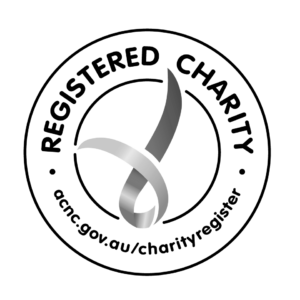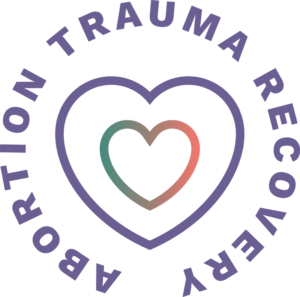“I feel like I’m going insane! I just want it to stop. Nothing makes sense anymore. This doesn’t happen to anyone else. What’s wrong with me?”
(Olivia, 33, RN)
Growing international research has led scholarly circles to agree that the correlation between abortion and poor mental health outcomes is established. While causation remains contentious, as a sticking point it is futile in the face of the undeniable presentation and devastation of abortion trauma within the community, and the need to address it. Common presentations include, PTSD, anxiety attacks, compulsive disorders (repeat abortions, eating disorders, sexual disorders, addictions), phobias, depression, personality disorders, psychosocial disorders, and emotional breakdown.
Abortion-related personality disorders are a societal challenge as the women just want to mentally check out, they don’t want to be here – it’s just too painful. Self-neglect, self-harm and self-defeating behaviours are all too often reported through women’s support crisis-lines, combined with their relentless feelings of despair, hopelessness, anger, or chronic rage associated with their abortion.
Connecting with past traumas is an essential element towards healing mental illness. Abortion-related illness often involves feelings of shame, pain, and guilt. To heal, women must be allowed to express and explore their feelings in a safe environment, devoid of unconstructive ideological judgements and platitudes, however well meaning. They need their feelings validated and acknowledged.
The journey to wellness after abortion involves the re-humanizing of a person who has been de-humanized by the experience.
10% of mental illness in women is attributed to abortion.
Meta-analysis of 877,188 women 163,831 of whom had experienced abortion, found an overall 81% increased risk of mental illness. Specifically, abortion exposure increased the risk of:
- Suicidal behaviour by 155%
- Anxiety disorders by 34%
- Depression by 37%
Compared to women who delivered, risk to mental health increased by 138%.1
“It (the abortion) was a big deal. Why didn’t anybody tell me? Why did they say it was nothing? Why did they say I’d feel better after? 11 years. I’m still waiting”.
(Zara, 29)
Australian research 21-year longitudinal study found those who had an abortion were nearly twice as likely to suffer from depression.2
‘…elevated rates of subsequent mental health problems including depression, anxiety, suicidal behaviours, and substance abuse disorders’, were observed in associate with abortion, in a 25-year longitudinal study of 1,265 women in NZ.3
Evidence from a 30-year longitudinal study found women exposed to induced abortions were 30% more likely to have mental health problems. Conditions most associated with abortion were anxiety and substance use disorders.4
Women who reported induced abortion were 65% more likely to score in the high-risk range for clinical depression, compared to women whose pregnancies resulted in birth.5
‘…High rates of PTSD characterize women who have undergone surgical abortions (almost one fifth of the sample met the criteria for PTSD) …’ at three months post abortion.6
Adolescents who abort are more likely to suffer mental health problems.
Adolescent girls who abort, compared to their peers who carried an unplanned pregnancy to term:7
- 5 times more likely to seek help for psychological/emotional problems
- 3 times more likely to report trouble sleeping
- 9 times more likely to report marijuana use
- Coleman P. K. (2011). Abortion and mental health: quantitative synthesis and analysis of research published 1995-2009. The British Journal of Psychiatry: the journal of mental science, 199(3), 180-186. https://doi.org/10.1192/bjp.bp.110.077230
↩︎ - Dingle, K., Alati, R., Clavarino, A., Najman, J. M., & Williams, G. M. (2008). Pregnancy loss and psychiatric disorders in young women: an Australian birth cohort study. The British Journal of Psychiatry, 193(6), 455-460. ↩︎
- Fergusson, D. M., John Horwood, L., & Ridder, E. M. (2006). Abortion in young women and subsequent mental health. Journal of Child Psychology and Psychiatry, 47(1), 16-24. ↩︎
- Fergusson, D. M., Horwood, L. J., & Boden, J. M. (2008). Abortion and mental health disorders: evidence from a 30-year longitudinal study. The British Journal of Psychiatry, 193(6), 444-451. ↩︎
- Rue1ABCDEFG, V. M., Coleman2CDEF, P. K., Rue3AEF, J. J., & Reardon4CDEF, D. C. (2004). Induced abortion and traumatic stress: a preliminary comparison of American and Russian women. Med Sci Monit, 10(10), 16. ↩︎
- Suliman, S., Ericksen, T., Labuschgne, P., De Wit, R., Stein, D. J., & Seedat, S. (2007). Comparison of pain, cortisol levels, and psychological distress in women undergoing surgical termination of pregnancy under local anaesthesia versus intravenous sedation. BMC psychiatry, 7(1), 1-9. ↩︎
- Coleman, P. K. (2006). Resolution of unwanted pregnancy during adolescence through abortion versus childbirth: Individual and family predictors and psychological consequences. Journal of Youth and Adolescence, 35, 903-911. ↩︎

